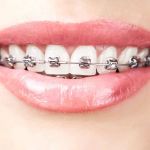What is a Tooth Abscess?
A tooth abscess is a pocket of pus that forms due to a bacterial infection in your gums. It can affect the involved tooth and spread to surrounding bone and neighboring teeth. Abscesses can occur in different places around a tooth for various reasons. There are three main types of tooth infections that can cause abscesses: gingival, periapical, and periodontal. If left untreated, a tooth abscess can have serious consequences for your oral and overall health, even spreading to your heart and brain in rare cases. People who smoke, have dry mouth, poor oral hygiene, or a weakened immune system are more prone to getting abscessed teeth.
Symptoms of a Tooth Abscess
If you have a tooth abscess, you might experience different types of pain, such as gnawing, throbbing, sharp, or shooting pain. The pain can be continuous or only occur when chewing and may radiate to your jawbone, neck, or ear. Other symptoms include tooth sensitivity to hot or cold temperatures, a bitter taste in your mouth, bad breath, gum redness and swelling, loosening of the affected tooth, a swollen area in your jaw, or an open, draining sore on the side of your gums. You may also have more general symptoms like a fever, swollen lymph nodes, or a general feeling of discomfort.
Causes of a Tooth Abscess
Anything that allows bacteria to enter your tooth or surrounding tissues can lead to a tooth abscess. Common causes include severe cavities, broken, chipped, or cracked teeth, gum disease, and injury to a tooth. Cavities break down the hard surface of your tooth, allowing bacteria to access the pulp. Bacteria can seep into any opening in a tooth and cause an infection. Gum disease gives bacteria access to deeper tissues, and trauma to a tooth can make it susceptible to infection even without a visible crack.
Diagnosis and Tests for a Tooth Abscess
Your dentist will examine the tooth and surrounding tissue for signs of infection. They may recommend a dental X-ray to identify sources of dental disease that led to the abscess and determine if the infection has spread. A CT scan may be used if the infection has spread to the neck. A tooth with an abscess is often sensitive to touch or pressure, and these tests help determine the health of your tooth pulp.
Treatment Options for a Tooth Abscess
The goals of treatment are to eliminate the infection and prevent complications. Options include incision to drain the pus, root canal treatment to save the tooth, tooth extraction if the tooth is beyond repair, and antibiotics. After treatment, a tooth abscess should clear up, but temporary sensitivity is common, and it may take a few days to feel completely normal. A tooth abscess will not go away on its own. Left untreated, it will eventually spread and cause more damage. It's crucial to see a dentist as soon as possible.
Prevention of Tooth Abscesses
You can reduce the risk of developing a tooth abscess by seeing your dentist regularly for check-ups and cleanings. It's also important to see your dentist if a tooth becomes loose or chipped. Maintaining proper oral hygiene by brushing your teeth twice a day and flossing once a day is essential for dental health. While warm saltwater rinses and over-the-counter pain relievers can ease discomfort while waiting for an appointment, there is no home remedy that can permanently solve the issue.
When to See a Dentist or Go to the ER
If you have mouth pain, a toothache, or a red, swollen bump on your gums, schedule an appointment with a dentist immediately. Head to the emergency room if you have a tooth abscess accompanied by a high fever, difficulty swallowing, facial swelling, confusion, or an elevated heart rate. When seeing a dentist, it's helpful to ask questions such as whether the abscess caused your symptoms, what tests will be needed, the best course of action, and if there are alternative treatment plans.
In conclusion, a tooth abscess is a serious condition that requires prompt attention and proper treatment. By maintaining good oral hygiene and visiting your dentist regularly, you can significantly reduce the risk of developing a tooth abscess. If you suspect you have a tooth abscess, don't hesitate to seek professional help to avoid potential complications and ensure your dental health.






 Lakebrink-Mitts Dental - Dr. Thomas G. Lakebrink, Dr. D. Alexander Mitts, Dr. Ise d'Angelo, Dr. Nika d'Angelo5.0 (1390 review)
Lakebrink-Mitts Dental - Dr. Thomas G. Lakebrink, Dr. D. Alexander Mitts, Dr. Ise d'Angelo, Dr. Nika d'Angelo5.0 (1390 review) Sage Dental of Windermere4.0 (423 review)
Sage Dental of Windermere4.0 (423 review) Libertyville Dental Associates5.0 (329 review)
Libertyville Dental Associates5.0 (329 review) Absolute Dental - Lake Mead4.0 (332 review)
Absolute Dental - Lake Mead4.0 (332 review) Summer Smile Dental South Gate4.0 (461 review)
Summer Smile Dental South Gate4.0 (461 review) Dr. Joanne Kim Orthodontics0.0 (0 review)
Dr. Joanne Kim Orthodontics0.0 (0 review) The Importance of Oral Health Education During Pregnancy for a Healthy Pregnancy
The Importance of Oral Health Education During Pregnancy for a Healthy Pregnancy Best Tips for Brushing Your Teeth Properly for Healthy Gums: Essential Techniques for Oral Health
Best Tips for Brushing Your Teeth Properly for Healthy Gums: Essential Techniques for Oral Health Why Skipping Dental Checkups Can Lead to Bigger Oral Health Problems
Why Skipping Dental Checkups Can Lead to Bigger Oral Health Problems Advantages of Porcelain Dental Restorations
Advantages of Porcelain Dental Restorations How Can Diabetes Cause Tooth and Gum Problems? Preventing and Managing Oral Health Issues
How Can Diabetes Cause Tooth and Gum Problems? Preventing and Managing Oral Health Issues Healthy Habits for Promoting Good Oral Health and Hygiene: Tips for a Healthy Smile
Healthy Habits for Promoting Good Oral Health and Hygiene: Tips for a Healthy Smile